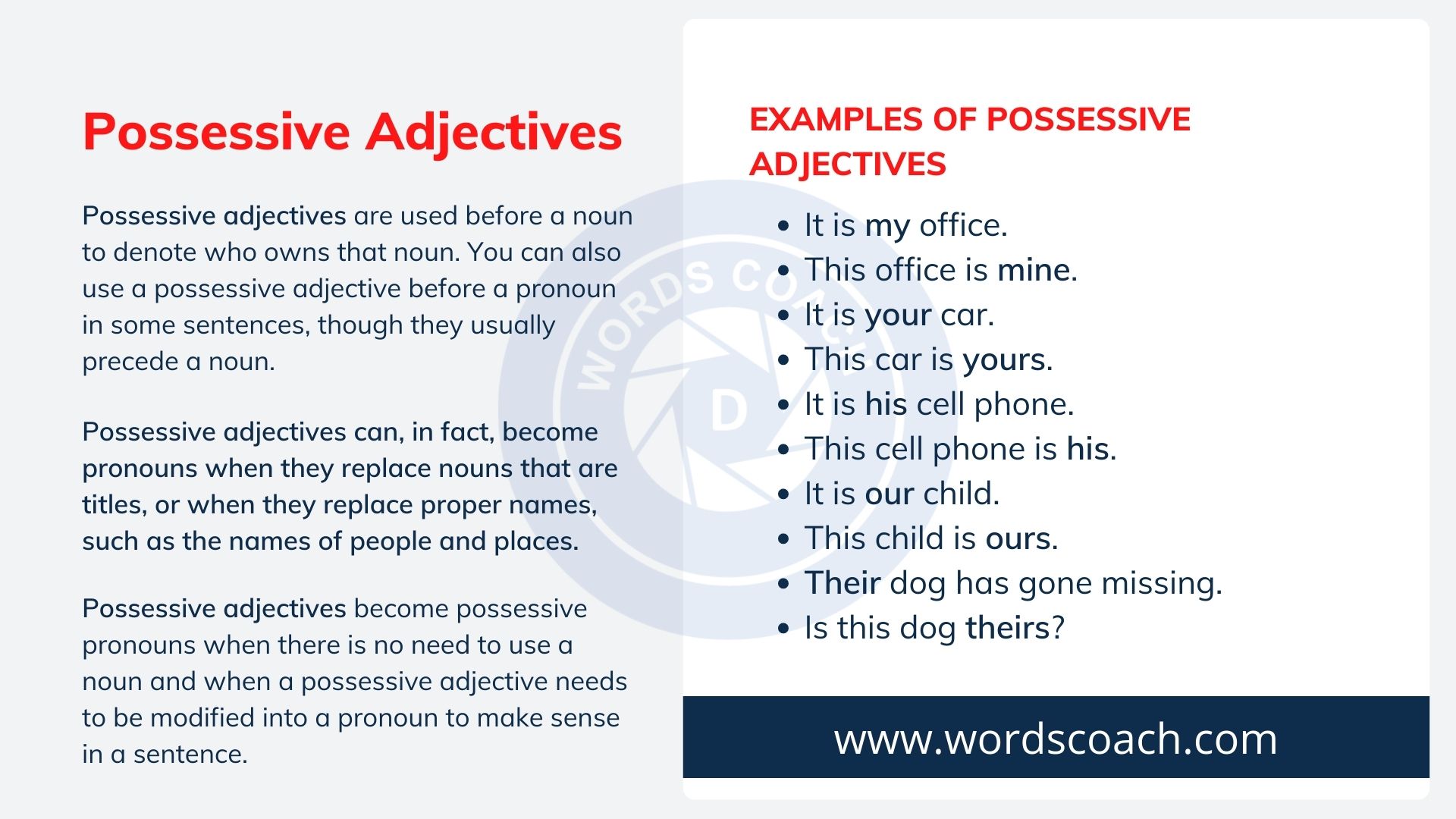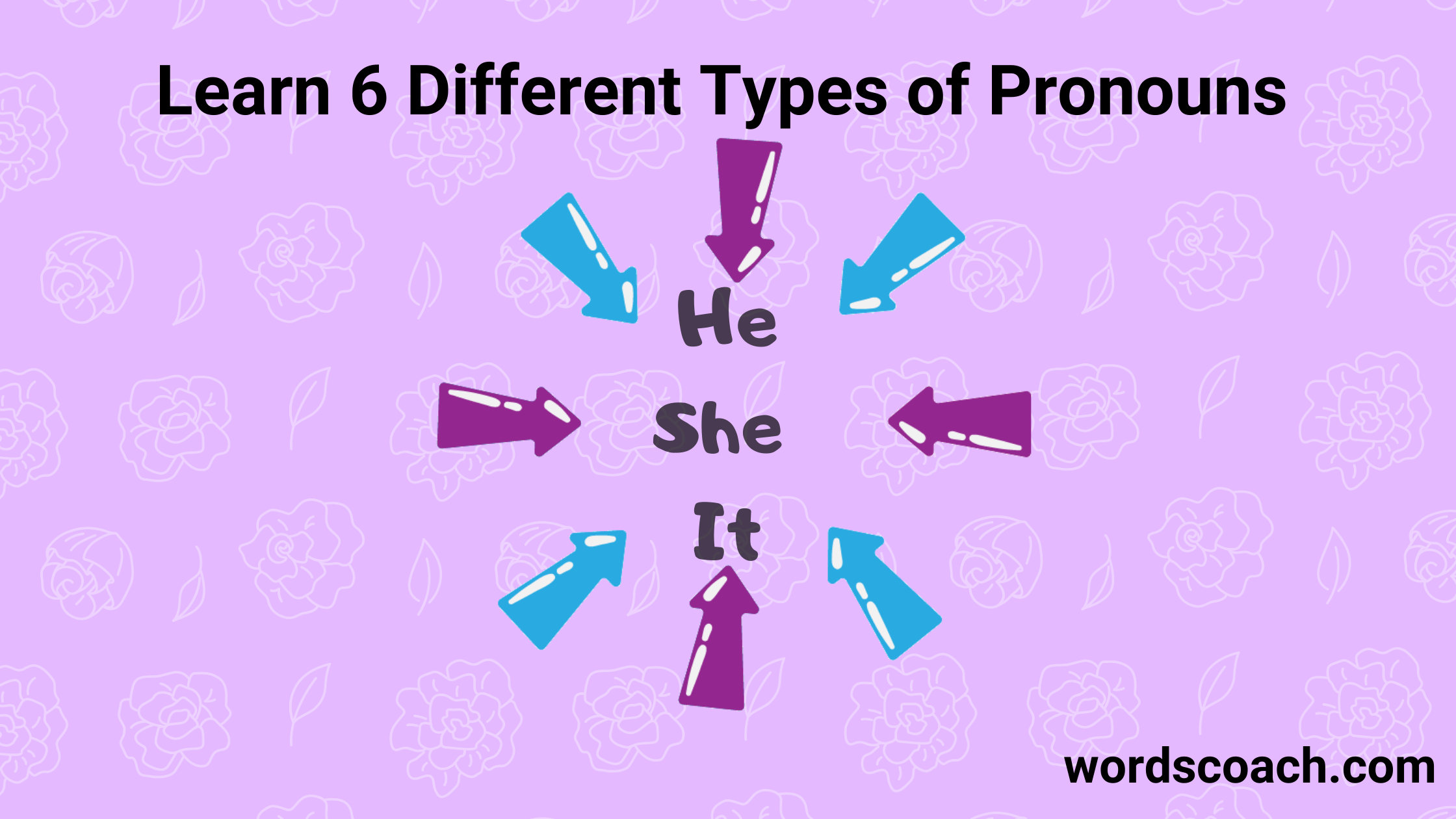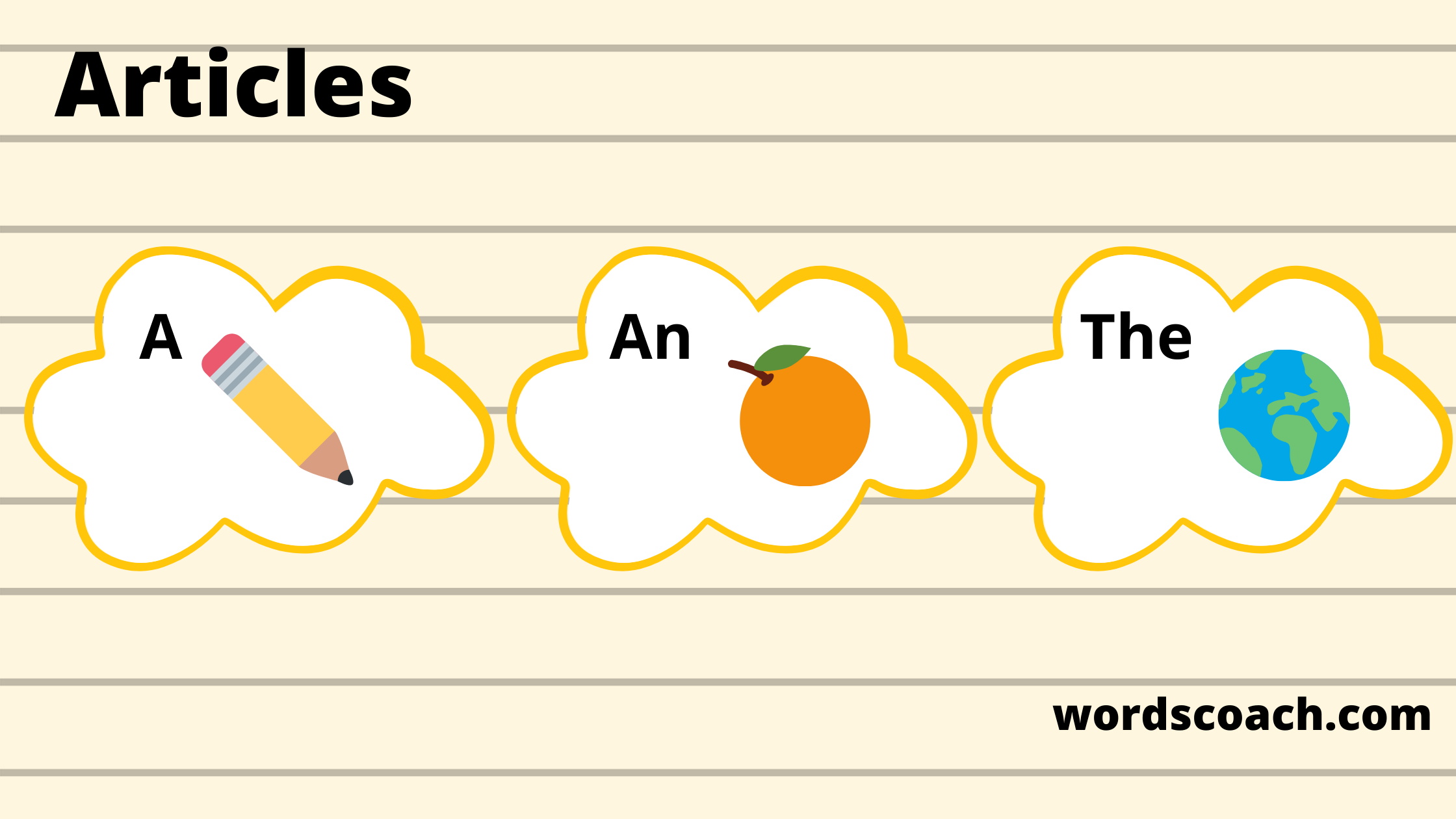What are Adjectives?
An adjective is a describing word. It gives more information about something. An adjective generally describes a Noun. A noun is a person, a place, or a thing. An adjective is one of the nine parts of speech.
What are possessive adjectives?
Possessive adjectives are used before a noun to denote who owns that noun. You can also use a possessive adjective before a pronoun in some sentences, though they usually precede a noun.
The most commonly used possessive adjectives are my, your, his, her, its, our, their, and whose. In order, these adjectives correspond to the pronouns I, you, he, she, it, we, they, and who. As their title, and name suggests, possessive adjectives are often used to express possession or ownership.
Possessive adjectives can, in fact, become pronouns when they replace nouns that are titles, or when they replace proper names, such as the names of people and places.
Possessive adjectives become possessive pronouns when there is no need to use a noun and when a possessive adjective needs to be modified into a pronoun to make sense in a sentence.

List of Possessive Adjectives
Possessive adjectives can be singular or plural, and almost all of them have a corresponding possessive pronoun.
Singular Possessive Adjectives
Below is a list of singular possessive adjectives and their possessive pronoun equivalents:
- My, with the possessive pronoun mine
- Your, with the possessive pronoun yours
- His, with the possessive pronoun his
- Her, with the possessive pronoun hers
Plural Possessive Adjectives
Here is a list of plural possessive adjectives and their possessive pronoun equivalents:
- Our, with the possessive pronoun ours
- Your, with the possessive pronoun yours
- Their, with the possessive pronoun theirs
Examples of Possessive Adjectives in Sentences
- It is my office.
- This office is mine.
- It is your car.
- This car is yours.
- It is his cell phone.
- This cell phone is his.
- It is our child.
- This child is ours.
- Their dog has gone missing.
- Is this dog theirs?









